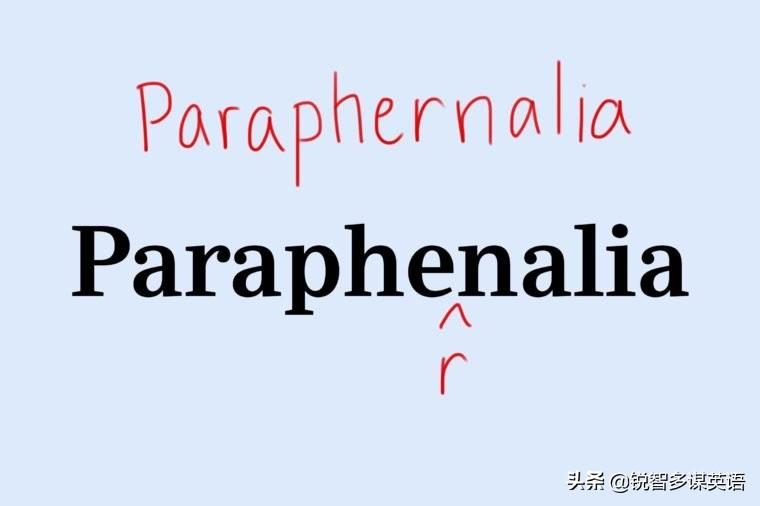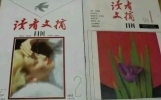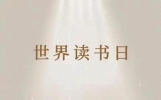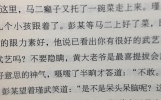
你还在纠结有些单词难记吗?这些单词会让你更加头疼!但它们毕竟只是少数。这些连英语国家人士都犯怵的词汇,我们就没有必要为记住它们一筹莫展而汗颜!找到规律,就是找到自信。
《读者文摘》(Reader's Digest),美国杂志,在全球多个国家和地区都有发行。1922年创刊,月刊。是一本能引起大众广泛兴趣的内容丰富的家庭杂志。它所涉及的故事文章涵盖了健康、生态、政府、国际事务、体育、旅游、科学、商业、教育以及幽默笑话等多个领域。该杂志列举了15个让英语国家人士“头疼”的词汇,我们试着记住它们!

8.Conscientious 英 [ˌkɒnʃiˈenʃəs] 美 [ˌkɑːnʃiˈenʃəs] adj. 勤勉认真的;一丝不苟的
“Conscious” and “conscience” are tricky enough to spell. Take the first eight letters of “conscience,” pronounce them differently, and add another “sh” sound created by different letters, and you’ve got a doozy of a word for “moral and principled.” For a real test of your spelling skills, see if you can pass this quiz of 4th-grade spelling words.
“Conscious”和“conscience”很难拼写。拿“conscience”的前八个字母来说,用不同的发音,再加上另一个由不同字母组成的“sh”音,你就得到了一个“moral and principled”的单词。要想真正测试你的拼写能力,看看你是否能通过这个四年级拼写单词的测试。
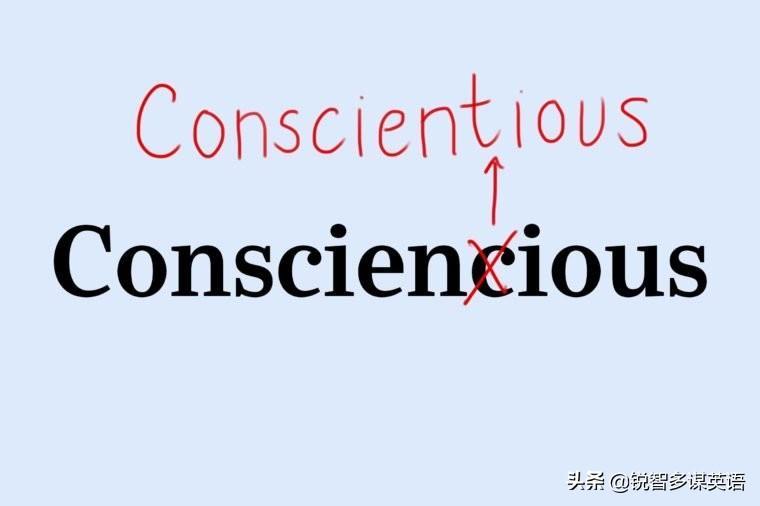
9.Wednesday 英 [ˈwenzdeɪ] 美 [ˈwenzdeɪ] n. 星期三
Native English spellers have gotten used to the spelling of “Wednesday,” but that doesn’t mean it isn’t still very, very strange when you think about it. What is that first “d” doing there?! Well, many English names for weekdays come from the names of old Germanic deities. Wednesday was named after the Norse god Woden, better known, at least to comic book fans, as Odin. (We have his hammer-wielding son Thor to thank for Thursday!) “Wednesday” comes from the Old English “Wōdnesdæg,” or “Woden’s Day.”
英语母语的拼写者已经习惯了“Wednesday”的拼写,但这并不意味着当你想到它时,它仍然不是很奇怪。第一个“d”在那里干什么?!好吧,许多平日的英文名字都来自于古日耳曼神的名字。星期三以挪威神沃登的名字命名,至少在漫画迷中更为人所知的是奥丁。(星期四我们要感谢他挥舞着锤子的儿子托尔!)“星期三”来自古英语“Wōdnesdæg”或“Woden's Day”
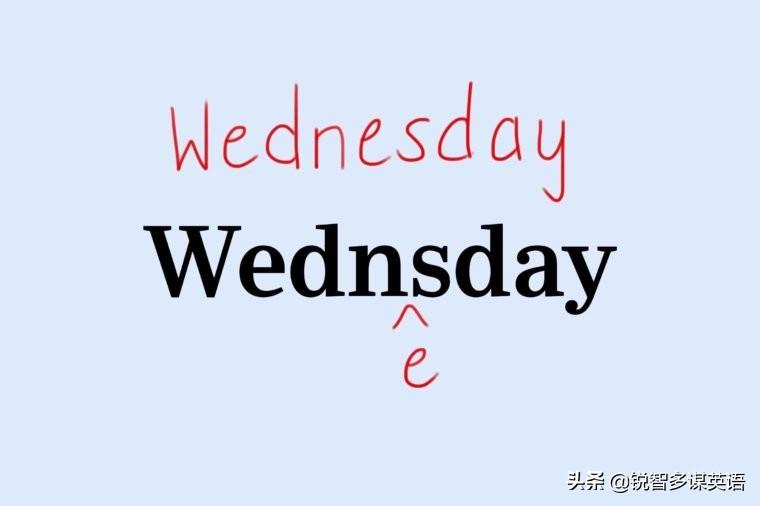
10.Acquiesce 英 [ˌækwiˈes] 美 [ˌækwiˈes] v. 默许;默许, 勉强同意;勉强
This is simply a word where if you know it, you know it. Looking quickly at this word, which means “comply or agree without question,” you might not think that that first “c” needs to be there; it isn’t in words like “aquatic” or “aquiver.” You may also be tempted to throw a double “s” on the end in lieu of the “sc,” or just write the “s” with no “c.”
这是一个简单的词,如果你知道它,你就算认得它吧。快看这个词,意思是“毫无疑问地服从或同意(comply or agree without question)”,你可能不认为第一个“c”需要在那里;它不是像“水产(aquatic)”或“阿基弗(aquiver)”这样的词。你也可能会被诱惑在最后扔一个双“s”来代替“sc”,或者只写“s”而不写“c”。
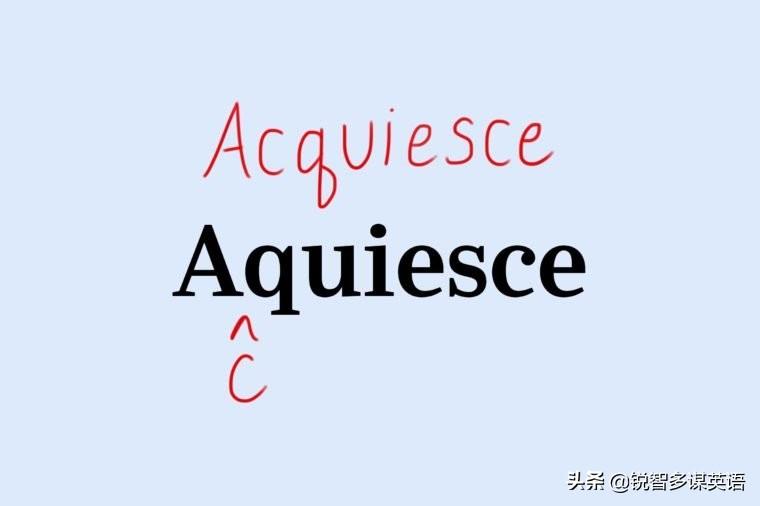
11.Bologna 英 [bəˈləʊnjə] 美 [bəˈloʊnjə] 波隆納;博洛尼亚;波洛尼亚;波隆那;博罗尼亚
There’s a reason many meat packages spell it “baloney.” The word “bologna” derives from Bologna, Italy, since a similar (but fancier) type of sausage comes from that city. If you want to mimic this fanciness, that “-gn” at the end should be pronounced with a “yuh” sound. But the Americanized, more phonetic spelling seems to better suit thin slabs of Oscar Mayer. All of these hard words to spell are nothing compared to these insanely tough words that won the National Spelling Bee.
有一个原因,许多肉类包装拼写为“baloney”,“bologna”一词源于意大利博洛尼亚,因为一种类似(但更奇特)的Bologna那个城市。如果你想模仿这种幻想,结尾的“-gn”应该发音为“yuh”。但是,美国化的、更符合语音的拼写似乎更适合奥斯卡·梅耶尔。所有这些难拼的单词都比不上那些赢得全国拼字比赛的疯狂难拼的单词。
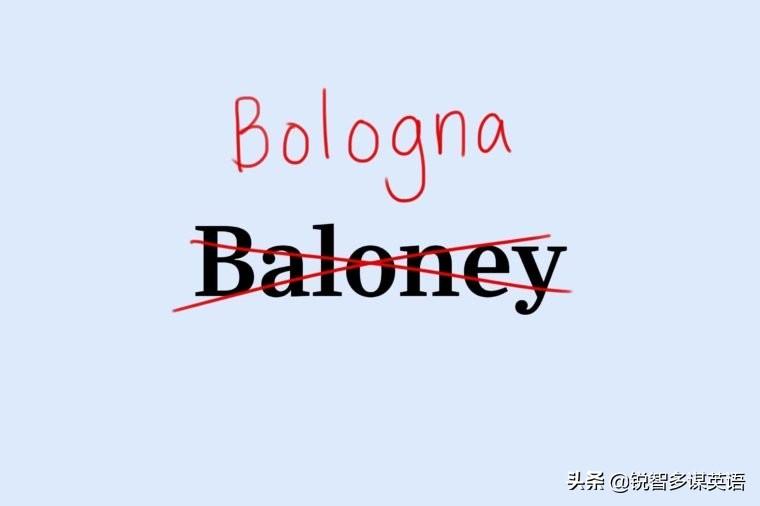
12.Fuchsia 英 [ˈfjuːʃə] 美 [ˈfjuːʃə] n. 紫红色;倒挂金钟;紫红;倒挂金钟属;紫紅色
Both the pairs of letters “sc” and “sh” have been known to make the sound that starts the second syllable of “fuchsia.” But, unfortunately for anyone who likes writing about colors or plants, “fuchsia” uses neither of those pairings, instead taking all the necessary letters and jumbling them up. The plant, whose flowers give the name to the color, was named after esteemed German botanist Leonhard Fuchs.
众所周知,两对字母“sc”和“sh”的发音都以“fuchsia”的第二个音节开头。但是,不幸的是,对于任何喜欢写颜色或植物的人来说,“fuchsia”都不使用这两个字母对,而是把所有必需的字母都拿出来混淆起来。这种植物的花以这种颜色命名,是以德高望重的德国植物学家莱昂哈德·富克斯( Leonhard Fuchs)命名的。
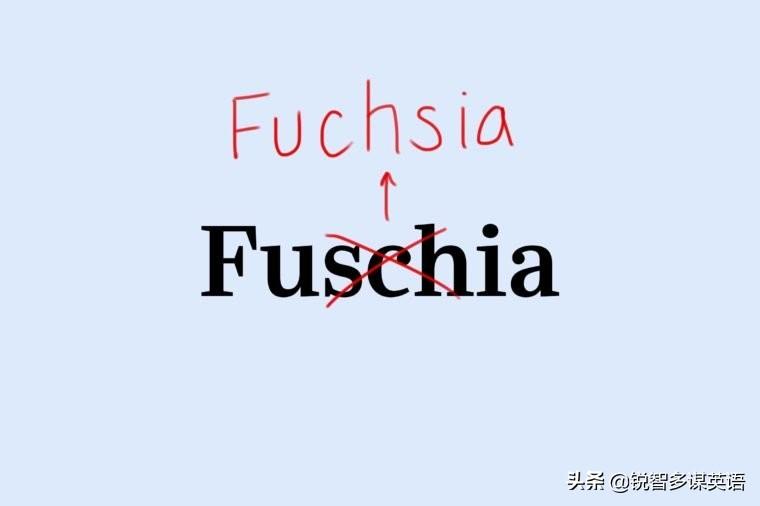
13.Nauseous 英 [ˈnɔːziəs] 美 [ˈnɔːʃəs] adj. 令人作呕的;恶心的;令人恶心的
There sure are a lot of vowels in “nauseous,” and it can be tricky to remember what order they go in. Even if you’ve got them straight, you may still second-guess yourself about the consonants, too. The “sh” sound makes it sound like there should be a “c” in there somewhere, like in “conscious.” And, as if the spelling confusion weren’t enough, you’ve probably been using the word “nauseous” wrong too, but that’s a whole ‘nother story.
“nauseus”中肯定有很多元音,记住它们的顺序可能很难。即使你把辅音弄明白了,你也可能会对辅音进行二次猜测。“sh”音听起来好像应该有一个“c”在某个地方,就像在“conscious”中一样。而且,似乎拼写混乱还不够,你可能也用错了“nauseous”这个词,但那是另一个完整的故事。
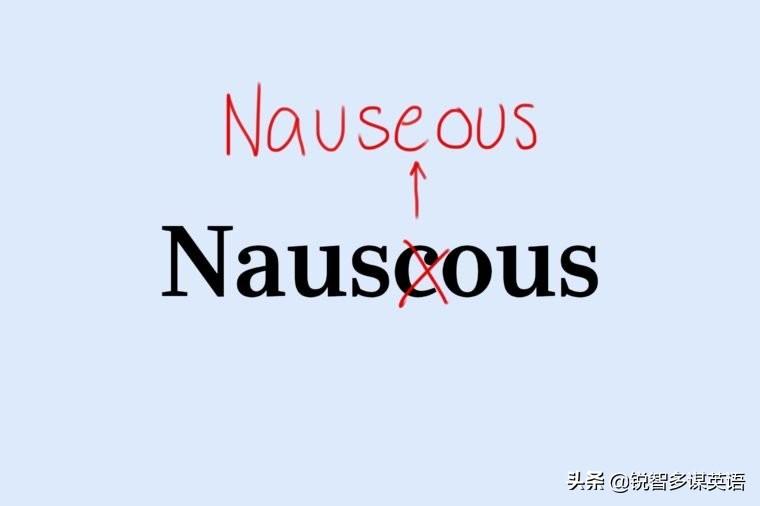
14.Orangutan 英 [ˈɔːrəŋˈuːtæn] 美 [ɔˈræŋətæn] 猩猩;红毛猩猩;小猩猩
These poor Bornean primates are the subject of much linguistic confusion. According to Merriam-Webster, their name is the amalgamation of two words in the Malay pidgin language: “orang” for “man” and “hutan” for “forest.” But many people prefer pronouncing an anglicized version that adds another “g” to the end, making the word perplexing for spellers. As if that weren’t confusing enough, some variations on the spelling hyphenate the word and/or add an “o” before the “u,” creating “orang-outan.”
这些可怜的博尔纳灵长类动物是语言混乱的对象。根据《韦氏大词典》的说法,他们的名字是马来洋泾浜语中两个词的混合体:“orang”代表“人”,而“hutan”代表“森林”。但许多人更喜欢用英语发音,在结尾处加上另一个“g”,这让拼写者感到困惑。似乎这还不够混乱,拼写上的一些变体在“u”之前用连字符连接单词和/或添加“o”,创建“orang outan”
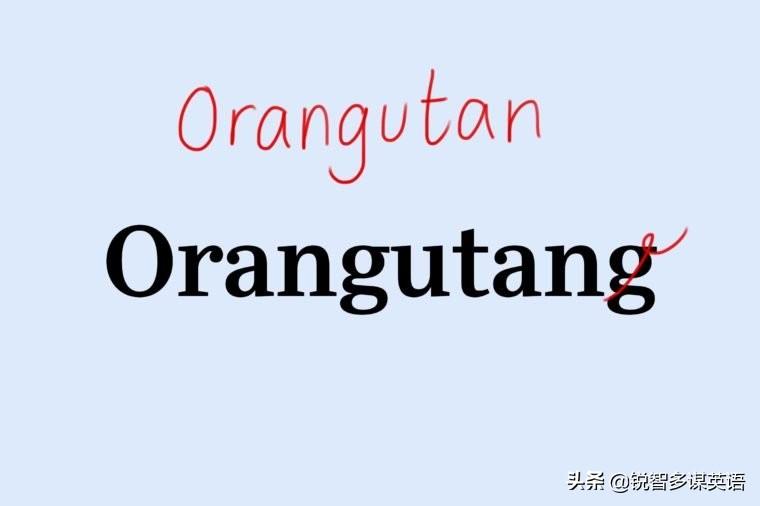
15.Paraphernalia 英 [ˌpærəfəˈneɪliə] 美 [ˌpærəfərˈneɪliə] n.随身用品;政治花瓶
Instead of adding a letter like in the case of “orangutan,” people pronouncing this already-tricky word tend to skip over the second “r” altogether. This mouthful actually comes from a nearly identical Latin word, paraphernālia, which referred to the belongings or property of a bride-to-be, similar to a dowry. Needless to say, this word has modernized, as now it can describe everything from ski gear to musical amplifiers to cell phone chargers. Next, ease your word-cluttered mind with these simple spelling rules to remember commonly misspelled words.
在“orangutan”这个词中,人们不会像“orangutan”那样加上一个字母,而是会把第二个“r”完全跳过。这一口实际上来自一个几乎相同的拉丁语单词paraphernālia,它指的是准新娘的财产或财产,类似于嫁妆。不用说,这个词已经现代化了,因为现在它可以描述从滑雪用具到音乐放大器到手机充电器的一切。下一步,用这些简单的拼写规则来缓解你的单词混乱的头脑,以记住常见的拼写错误的单词。
